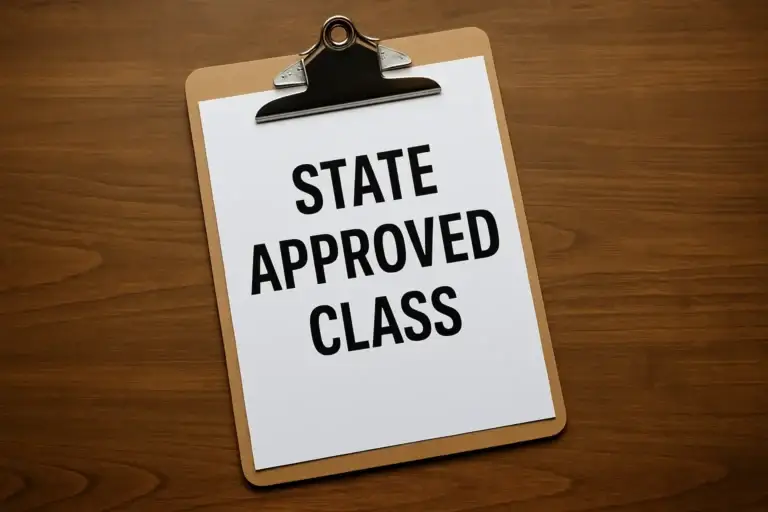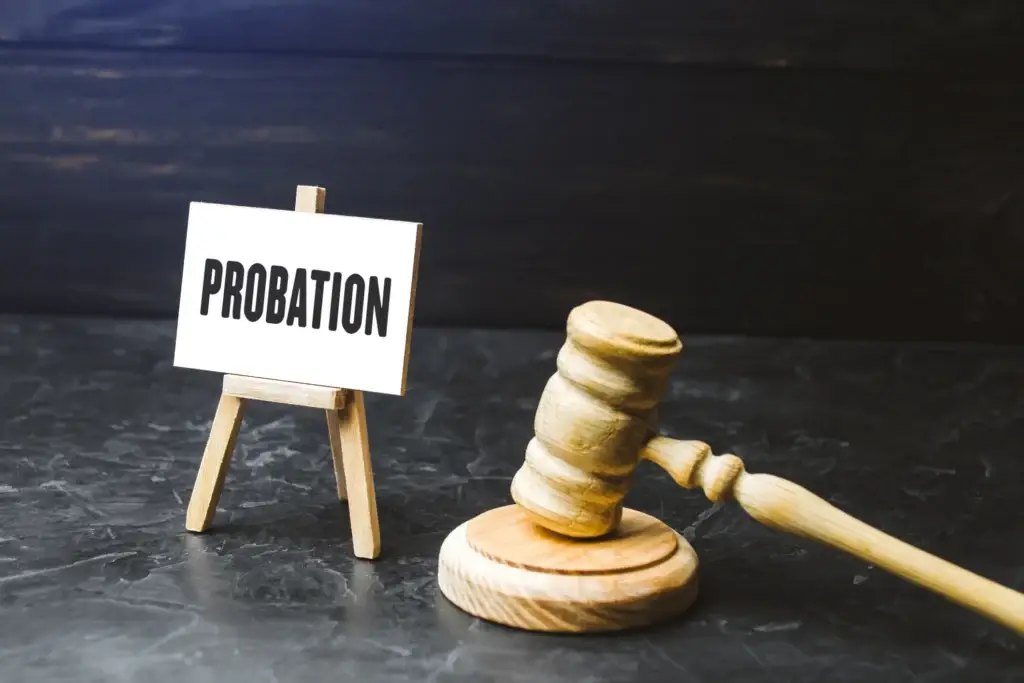April 21, 2025
Alcohol Awareness Classes for First-Time Offenders: Your Essential Guide After an Initial Alcohol-Related Offense

If you’ve recently been charged with an alcohol-related offense for the very first time – perhaps a first-offense DUI/DWI, a minor in possession (MIP) citation, or a public intoxication charge – you are likely navigating unfamiliar and potentially intimidating legal territory. Facing a court order or a requirement from your probation officer to complete an alcohol awareness class can add to the stress and confusion, especially if you’ve never encountered the legal system before. However, it’s crucial to understand that these alcohol awareness classes, particularly when mandated for first-time offenders, are generally not intended solely as a punishment. Instead, they are structured educational opportunities designed to provide you with vital information, help you understand the seriousness of your offense, clarify the risks associated with alcohol misuse, and empower you to make informed, healthier decisions moving forward, ultimately helping you avoid future legal trouble.
This comprehensive guide is tailored specifically for individuals who have just experienced their first alcohol-related offense. We will thoroughly explore what alcohol awareness classes for first offenders entail, delve into the specific reasons why courts mandate them for this population, detail the significant benefits these classes offer to someone who has just had their initial offense, provide practical advice for successfully completing your requirements, and answer the questions first-time offenders most commonly ask. Understanding the process clearly can significantly ease anxiety, provide valuable knowledge, and ensure you confidently fulfill your legal obligations and make this first offense the only one.
For a complete resource on online alcohol awareness classes, including various course types and what to expect, visit our ultimate guide: The Ultimate Guide to Online Alcohol Awareness Classes.
Understanding Alcohol Awareness Classes Specifically for First-Time Offenders
Alcohol awareness classes are structured educational programs with a clear curriculum designed to educate participants about the risks associated with alcohol misuse, the impact on individuals and society, responsible decision-making regarding alcohol consumption, and strategies for preventing future alcohol-related incidents. While the core educational content is similar across different classes, the context for a first-time offender is unique. For you, the class is an opportunity for early intervention and prevention.
- What the Classes Cover: These courses typically include fundamental topics such as understanding how alcohol affects the body and brain, the specific legal and personal consequences of alcohol misuse and related offenses in your state, recognizing potentially problematic drinking behaviors, and developing practical skills for making safer choices related to alcohol use and avoiding high-risk situations. For a general overview of class content, refer to our comprehensive resource: Court-Approved Online Alcohol Awareness Classes.
- Why Courts Mandate Them Specifically for First-Time Offenders: Courts mandate these educational interventions for first-time offenders primarily as a powerful tool for early prevention and deterrence. Evidence consistently demonstrates that individuals who complete alcohol awareness education, particularly after a first offense, significantly reduce their risk of future alcohol-related legal trouble. Courts see this as a crucial opportunity to educate individuals before problematic behaviors become ingrained or lead to more serious offenses. It’s often part of a less severe penalty structure for first offenses, offered as an educational path instead of or in addition to harsher penalties. Reasons Courts Order Alcohol Awareness Classes provides more detail on the rationale behind court mandates. For first offenders, courts aim to educate you on the severity of the consequences you’ve just experienced and provide tools to avoid a repeat offense, which carries much more severe penalties. The class is a way to help ensure this remains a one-time event. It also helps courts assess if a basic educational intervention is sufficient, or if the offense indicates a need for a more in-depth clinical assessment.
What to Expect from Alcohol Awareness Classes as a First-Time Offender: Tailored for Early Intervention
If you’re facing an alcohol awareness class requirement for the first time, understanding exactly what the process involves and what the curriculum will emphasize can help ease any anxiety and highlight the program’s relevance to your specific situation.
- Typical Class Structure and Duration: Alcohol awareness classes mandated for first offenses generally range from 4 to 8 hours in length, though more severe first DUIs or specific state laws may require a 12-hour course. The exact duration is specified in your court order or probation terms. The format typically includes structured lessons (often delivered via online modules or classroom sessions), presentations, interactive exercises (like quizzes throughout the course, and a final comprehensive exam or assessment at the end to ensure you have understood the material.
- Course Content and Topics Emphasizing Prevention: While covering core alcohol education, classes for first-time offenders will likely place a strong emphasis on:
- Understanding the Immediate Consequences of Your Offense: The course will connect general information about legal consequences to your specific situation, clarifying the penalties you are facing (fines, probation, license suspension and the impact on your driving record.
- Your BAC and Impairment: You’ll learn about Blood Alcohol Concentration (BAC), how it is measured, and how your BAC level at the time of your offense related to impairment levels. This helps clarify just how impaired you were, even if you felt “fine.” The Science Behind Alcohol Awareness Courses provides the science behind this.
- Recognizing Early Signs of Problematic Use: The course will introduce concepts of recognizing potentially unhealthy drinking patterns or behaviors that could escalate into more serious issues if not addressed proactively.
- Making This a One-Time Event: The curriculum focuses heavily on providing you with the tools and strategies to ensure this first offense is your only one. This includes planning for safe transportation before drinking, practicing refusal skills to handle peer pressure, identifying personal triggers for risky behavior, and understanding healthy alternatives to alcohol in social or coping situations. The content is designed to empower you to make better choices moving forward.
- Understanding Specific Offense Types: If your offense was a DUI/DWI, the content will heavily focus on the risks of impaired driving. If it were an underage offense, it would include information specific to minors and alcohol.
- Assessments and Certificate: Successful completion requires passing quizzes and a final exam to obtain your official certificate of completion, which you will need to submit to the court or probation officer as proof of compliance.
The course will introduce concepts of recognizing potentially unhealthy drinking patterns or behaviors that could escalate into more serious issues if not addressed proactively.
Significant Benefits of Completing Alcohol Awareness Classes for First-Time Offenders
Successfully completing your mandated alcohol awareness class offers unique and crucial benefits for someone who has just had their first alcohol-related offense. It’s an investment in preventing a repeat offense and navigating the legal aftermath effectively.
Dramatic Reduction in Risk of
- Future Offenses (Recidivism): This is arguably the most significant benefit for a first-time offender. By clearly understanding the risks and consequences, gaining practical skills, and reflecting on your behavior, you significantly reduce the likelihood of having a second offense, which carries much harsher penalties than a first offense. The class provides the knowledge needed to actively prevent this. How Alcohol Awareness Classes Can Reduce Recidivism highlights the evidence for this.
- Improved Personal Accountability and Responsible Decision-Making: The class helps you understand the full weight of your first offense and prompts you to take responsibility for the choices that led to it. This fosters a stronger sense of personal accountability and empowers you to make more responsible decisions regarding alcohol and your behavior in the future.
- Efficiently Satisfying Court or Probation Requirements: Promptly completing your mandated alcohol awareness course is essential for complying with your court order or probation terms for a first offense. This avoids unnecessary court complications, potential penalties for non-compliance, and helps ensure you fulfill your legal obligations efficiently, allowing you to move forward with your life.
- Essential for Driver’s License Reinstatement: If your first offense resulted in a driver’s license suspension or revocation (common with DUI/DWI and underage offenses), completing the alcohol awareness class is typically a mandatory step required by the DMV for license reinstatement. You cannot get your license back without providing proof of completion.
- Education for a Lifetime of Safer Choices: The knowledge and skills gained about alcohol’s effects, risks, and decision-making strategies are valuable not just for avoiding legal trouble, but for making healthier choices throughout your life, positively impacting your health, relationships, and future opportunities.
- Potential Mitigation of Penalties (Jurisdiction-Specific): In some first-offender programs, such as diversion or deferred adjudication, successfully completing the alcohol awareness class and other requirements is a mandatory condition that, if met, can lead to reduced charges, avoidance of a conviction, or even expungement of the offense from your record. While this varies by state and offense, the class is a necessary step towards potentially achieving a more favorable legal outcome for your first offense.
- Navigating the Legal Process: The class content often provides clarity on the legal consequences and processes you are currently navigating, helping you better understand the situation resulting from your first offense.
Choosing Between Online and In-Person Alcohol Awareness Classes for First-Time Offenders
First-time offenders, like others required to take these classes, often have the option to choose between online and in-person formats. Both are designed to deliver the required curriculum, but offer different advantages. Many first-time offenders find online classes particularly convenient:
- Advantages of Online Alcohol Awareness Classes:
- Convenience and Flexibility: Complete the coursework around your personal schedule without interfering with work, school, or family commitments. This flexibility is especially helpful if your license is suspended.
- Privacy and Comfort: Engage with the material in the privacy of your own home, which can be less intimidating for some compared to a group setting.
- Immediate Certification: Obtain your completion certificate instantly upon finishing, streamlining timely compliance with court or probation requirements. This is crucial for meeting deadlines related to your first offense.
- Accessibility: Accessible from anywhere with internet access, regardless of your location or transportation limitations.
Cost-Effective: Generally more affordable than in-person options.
- Advantages of In-Person Classes:
- Structured Environment: Provides a fixed schedule that can help some individuals stay on track.
- Direct Interaction: Offers face-to-face interaction with an instructor and other participants, which some prefer for discussion.
Regardless of format, always confirm with your probation officer or court representative to ensure the specific online or in-person provider you choose is approved for your first-time offense requirement.
Successfully Completing Your Alcohol Awareness Class as a First-Time Offender
Approaching your alcohol awareness class requirement with a proactive mindset is key to successfully completing it and gaining the most benefit from the experience.
- Start Early and Stay Organized: Enroll in the class as soon as possible after receiving your court order or probation instructions. This prevents last-minute stress and ensures you have ample time to complete the course comfortably before your deadline. Keep all documentation (court order, provider info, certificate) organized.
- Understand Your Specific Requirements: Double-check the required course duration (4, 8, or 12 hours) and any specific instructions from your court or probation officer.
- Engage Fully with Course Material: Treat the class as a valuable opportunity to learn. Take detailed notes on key concepts, participate actively in quizzes or reflective exercises, and think about how the material applies to your own situation and decision-making process. Tips for Successfully Completing Your Alcohol Awareness Class provides detailed strategies.
- Utilize Provider Support Resources: If the provider offers online resources, quizzes, or customer support, use them if you encounter technical issues or have questions about the material.
- Prepare for and Pass Assessments: Pay attention to the material that will be covered in quizzes and the final exam. Review your notes and utilize any practice tests provided.
- Submit Your Certification Promptly: As soon as you successfully complete the course and receive your certificate of completion, submit it immediately to the court, probation officer, or DMV as required by your order. Confirm the required submission method.
Yes. Accredited online alcohol awareness classes from reputable, state-approved providers like Courseable are widely accepted by courts and probation departments across the country for fulfilling first-time offender requirements. However, you must verify that the specific online provider is approved for your state and for the type and duration of class required by your court or probation office for your case. Always confirm directly with your local jurisdiction.
Yes. Completing a state-approved alcohol awareness class is typically a mandatory step for driver’s license reinstatement after a first-offense DUI/DWI. You cannot get your license back without the certificate Can Alcohol Awareness Classes Help Restore Your License? Some car insurance companies may also offer discounts or mitigate premium increases upon receiving proof of completion, viewing it as a sign of proactive responsibility Alcohol Awareness Classes and Insurance Discounts.
Most reputable alcohol awareness course providers understand that participants may struggle with assessments. They typically allow multiple attempts to pass quizzes and the final exam within the original course fee. If you fail, you can review the material and retake the assessment. If you continue to struggle, utilize the provider’s support resources. The key is to ultimately successfully complete the course by your court deadline. What Happens if You Fail an Alcohol Awareness Class? provides more detailed guidance.
No. Completing a standard alcohol awareness class after a first offense is generally seen by the court as an educational requirement designed for prevention and risk reduction, not necessarily a diagnosis of an alcohol problem or alcohol use disorder. It provides education relevant to your offense and helps you make informed choices, regardless of your overall relationship with alcohol. These classes are distinct from clinical alcohol treatment programs, which address addiction Alcohol Classes vs Treatment Programs.
Completing the mandated alcohol awareness class is often a mandatory condition of programs (such as diversion programs or deferred adjudication) that can lead to avoiding a full conviction or having the charges dismissed if all requirements are successfully met. This outcome varies significantly by state, the specific offense, and the terms of your plea agreement or program. While the class itself doesn’t automatically erase a record, fulfilling this requirement is often a necessary step towards achieving a more favorable legal outcome for your first offense.
The core content for a given duration (e.g., an 8-hour class) is typically the same regardless of whether you are a first-time or repeat offender. The main differences are the reason for the court order and the length of the class mandated (repeat offenders are typically required to take longer, more intensive courses). The learning experience depends more on your engagement and study habits than on your offender status.
Alcohol awareness classes focus on educating you about the risks and consequences of alcohol misuse and providing tools for making safer choices. This includes understanding impairment, planning for sober transportation, and recognizing problematic patterns. While some may touch upon concepts of moderation, the primary emphasis is on avoiding problematic alcohol use and, crucially, avoiding illegal behaviors like impaired driving. The focus is on responsible choices and risk reduction.
Your court order or probation terms will specify a deadline for completing the class (e.g., within 60 days, 90 days, or 6 months of your sentencing date). It is critical to meet this deadline.
Often, these terms are used interchangeably for the educational program mandated after a DUI offense. A “DUI School” specifically focuses on impaired driving risks. A standard “Alcohol Awareness Class” may cover broader alcohol education but, when mandated for a DUI, the curriculum will include significant focus on impaired driving relevant to state standards. Ensure the course title and curriculum meet the specific requirements outlined in your court order or by your DMV.
Our comprehensive guide to Frequently Asked Questions about alcohol awareness classes provides answers to many other common inquiries, including costs, validity, and more: Alcohol Awareness Class FAQs.
Treat the class as a valuable opportunity to learn.
Final Thoughts: Your First-Time Offense is an Opportunity for Positive Growth and Prevention
Facing your first alcohol-related offense and the associated requirement to complete an alcohol awareness class can feel daunting and unsettling. However, by clearly understanding the process, recognizing the educational purpose behind the mandate, and engaging actively with the course material, you can transform this challenging situation into a meaningful opportunity for learning and personal growth. Alcohol awareness classes for first-time offenders are specifically designed for early intervention – they are not merely punitive but scientifically validated tools aimed at preventing a single offense from becoming a pattern, promoting personal accountability, and equipping you with the knowledge and skills to make safer, more responsible decisions throughout your life.
Courseable’s accredited online alcohol awareness classes offer flexible, convenient, and empathetic solutions specifically tailored to help first-time offenders fulfill their court requirements smoothly and effectively. Our courses provide the necessary education, immediate certification, and a supportive learning environment designed to ensure you gain the most benefit from the experience.
Ready to confidently address your court-ordered alcohol awareness requirement and take a proactive step towards positive growth and avoiding future complications?
Enroll Today in Courseable’s Court-Approved Online Alcohol Awareness Classes and make this first offense the only one.

Finding a State-Approved Online Alcohol Awareness Course: Your Complete Guide to Verification and Compliance
Read More »
How to Confidently Verify if Your Online Alcohol Awareness Class is Legitimate and Court-Approved
Read More »Disclaimer: Always Consult with Your Probation Officer, Court, or Legal Counsel
This article provides general information and guidance regarding alcohol awareness classes specifically for first-time offenders. It is intended for educational purposes only and does not constitute legal advice, medical advice, or professional counseling. Specific requirements for mandatory classes, acceptable providers, deadlines, consequences of non-compliance, and potential outcomes for first offenders vary significantly by state, county, the nature of the specific offense, and individual case circumstances and are subject to change. You must always consult directly with your probation officer, the court clerk, your attorney (if applicable), or the relevant state DMV or licensing authority to confirm the exact requirements applicable to your specific situation, verify the acceptance of any course provider, and understand the full implications of your first offense. Ensure you choose an accredited provider whose certificate will be accepted by the mandating authority.
Related Posts

Alcohol Awareness Classes and Probation: Understanding Your Requirements and Ensuring Compliance

How to Confidently Talk to Your Employer About a Court-Ordered Alcohol Awareness Class
Start Your Court Ordered Alcohol Class

